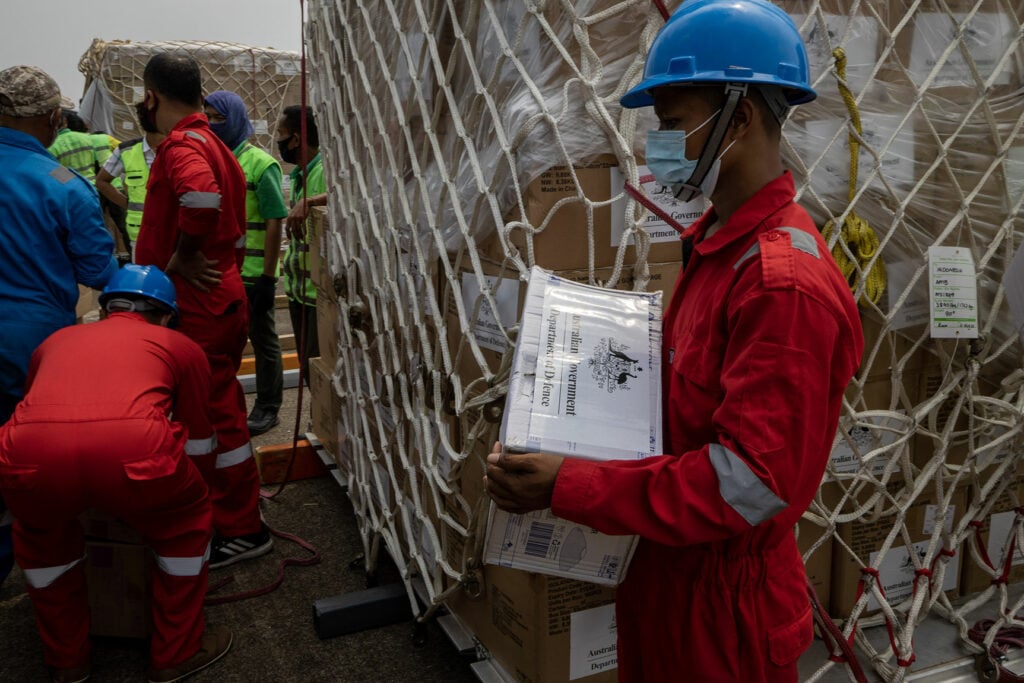Philanthropic Protectionism in the Indo-Pacific
How Foreign Funding Restrictions Hampered Non-Profit Organizations during COVID-19
PUBLISHED: MARCH 2023
Government restrictions on cross-border funding of domestic non-profit organizations (NGOs) are designed to control and limit the resources available to NGOs for use in their charitable activities and operations. This report presents the findings of an empirical study examining the extent and consequences of legal, regulatory and informal measures to restrict foreign funding of NGOs in nine countries in the Indo-Pacific region: Bangladesh, India, Indonesia, Malaysia, Nepal, Pakistan, Philippines, Sri Lanka, and Thailand. In examining the consequences of foreign funding restrictions in these countries, the report focuses on how these barriers have impacted the fundraising capacity, activities and operations of NGOs, particularly during the COVID-19 pandemic when additional restrictions were introduced in some countries.
This report was authored by Dr. Natalie Silver, Senior Lecturer at The University of Sydney Law School and Dr. Natasha Balendra, independent research consultant.
The key findings are as follows:
- Of the countries surveyed, some countries – India, Pakistan, and Bangladesh – have laws and regulations that specifically target foreign funding with a full range of restrictions, which include: registration requirements and prior government approvals for the receipt and/or use of foreign funds; cancellation of registration and penalties for violations associated with the receipt and/or use of foreign funds; restrictions on the activities and operations undertaken with foreign funds; and reporting requirements for activities supported by foreign funds. These are the countries in which the restrictions appear to have had the most negative impact on NGOs.
- Different forms of informal government harassment and intimidation, such as physical attacks, being labelled “western agents,” physical and online surveillance, cyber-attacks, and threats are impacting NGOs that receive foreign funding in all of the countries surveyed.
- In all countries, the effect of restrictive laws and regulations on NGO funding and activities is determined as much by the manner and extent of implementation of those laws and regulations as it is by the formal letter of these laws and regulations. Even restrictions which are more innocuous on their face, such as reporting requirements, are being implemented in a heavy-handed and onerous manner.
- Governments across the Indo-Pacific region have been unable to fully respond to the devastating impacts of COVID-19, and NGOs have played a vital role in bridging this gap. Despite this, restrictions on foreign funding of NGOs have increased during the pandemic, negatively impacting the work of NGOs struggling to raise adequate funds.
- Foreign funding restrictions have created complex bureaucratic hurdles which are particularly burdensome when responding to emergencies like COVID-19, both because vital funds and resources must be diverted to comply with the restrictions, and because the restrictions are causing delays which makes rapid response difficult.
- Foreign funding restrictions are limiting the capacity of NGOs to engage in awareness raising, advocacy, and research, all of which are an important part of the response to COVID-19. In addition, although the restrictions are often motivated by a desire to prevent rights-based advocacy, they are having a widespread impact and impeding the ability of NGOs to provide service delivery.
- More broadly, the restrictions are having a three-fold chilling effect on NGOs: posing an existential threat to some NGOs; causing NGOs to leave countries altogether; and silencing individuals and NGOs working on certain issues. An example is provided by this study itself, where the interviewees wished to preserve their anonymity.
These findings highlight the significant impact of foreign funding restrictions on NGOs in the Asia-Pacific region, and the negative consequences these restrictions have had on their ability to respond to COVID-19.
Learn more about the issue and explore ICNL’s Asia & the Pacific Program here.
Sign up for our newsletters
Sign up
